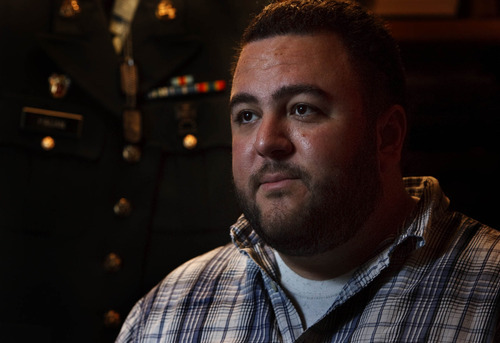This is an archived article that was published on sltrib.com in 2010, and information in the article may be outdated. It is provided only for personal research purposes and may not be reprinted.
Nothing can give him back what he lost when he was discharged from the Army under "don't ask, don't tell."
But James Pagan got the next best thing Saturday as the U.S. Senate voted to end the rule that since 1993 has barred gay military members from revealing their sexual identity.
Now, Pagan said, what happened to him won't happen to anyone else.
"I cried when I found out," said Pagan, who was forced out of the Army in 1999 after a conversation with a suspicious fellow soldier led to a command investigation into his sexual identity. "It's just been going on for so long. And it's good to know that it's finally over."
President Barack Obama said in a statement that the Senate's 65-31 vote ends a policy that, for 17 years, has undermined "our national security while violating the very ideals that our brave men and women in uniform risk their lives to defend." He is expected to quickly sign the bill, which was passed by the House earlier in the week.
Changes to the current policy won't take effect for several more months as military officials work out how to implement the change, which Congress passed shortly after a military-wide study showed that a majority of service members believed allowing gay individuals to serve openly would have little or no effect on their ability to perform their duties as soldiers, sailors, airmen, Marines and Coast Guard personnel.
But Valerie Larabee, a former Air Force officer who now runs the Utah Pride Center, said she was "elated" to know that the end of the ban was near.
Now, she said, "those of us who are veterans can look back upon our service and know that we were on the right side of history."
The change comes without the support of either of Utah's senators. During a rare weekend session, Sen. Bob Bennett voted against repealing the policy, saying he believed the military's recent study was flawed.
"I had hoped that the Pentagon study would have been more definitive, but it turned out muddled," Bennett said, echoing the comments of many of his fellow Republicans, who noted that members of combat units had expressed greater reservations about the shift than the military as a whole.
While some military leaders — Secretary of Defense Robert Gates and Joint Chiefs of Staff Chairman Adm. Mike Mullen, most notably — support ending the ban, others like Marine Corps Commandant Gen. James Amos have said they would rather not implement a change at this time.
"Without the complete backing of our military leaders during wartime, I am reluctant to force a repeal," Bennett said.
Sen. Orrin Hatch was absent for the vote but registered his dissent from afar. He said November's election should have shown that voters want Congress to focus on the economy — not try to appeal to their liberal supporters.
"Rather than take part in this cynical exercise in political charades, I am honoring a long-standing commitment I made more than a year ago to attend my grandson's graduation in Missouri," Hatch said.
But little could blunt Pagan's delight on Saturday. "I knew this day was coming," he said. "But I thought it wouldn't be for a long time."



